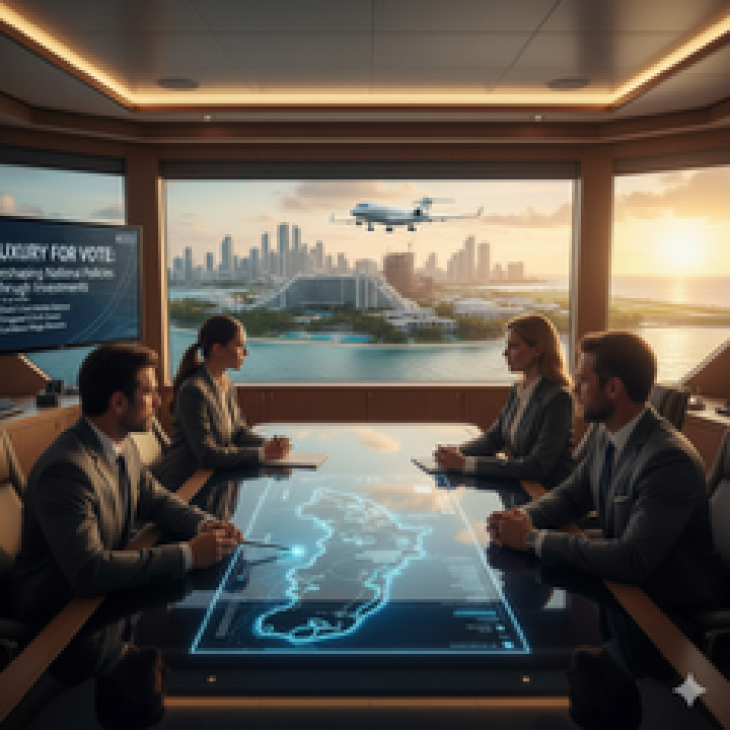
By Publisher Ray Carmen
In today’s hyper-connected global economy, wealth is no longer just a measure of lifestyle—it’s increasingly a tool of influence. Ultra-high-net-worth individuals (UHNWIs) are quietly transforming the political landscape, not through traditional campaigning, but by strategically investing in nations, industries, and infrastructures. This subtle interplay of money, luxury, and policy is redefining power in ways that few fully understand.
When Money Meets Policy
Gone are the days when political influence was limited to lobbyists or campaign donations. Today, billionaires are using mega-investments in technology, real estate, and critical infrastructure to shape policy decisions that align with their interests. From funding sustainable energy programs to building exclusive economic zones, these investments often come with strings attached—policy incentives, tax benefits, and regulatory reforms that serve both the public and private spheres.
Take, for example, the surge of luxury real estate developments in emerging markets. High-net-worth investors pour billions into building ultra-luxury resorts, private islands, and cutting-edge infrastructure. While these projects create jobs and drive tourism, they also influence zoning laws, environmental regulations, and local tax codes—essentially shaping the governance of entire regions.
Luxury as Leverage
Luxury is no longer confined to private jets, yachts, or designer labels—it has become a currency of political leverage. Exclusive clubs, private summits, and high-end philanthropic ventures allow the wealthy to network directly with policymakers, forging partnerships that are as strategic as they are lavish. In some cases, mega-investments are directly tied to policy concessions, granting investors a say in urban planning, technology regulation, or even national economic priorities.
Global Examples
-
Dubai’s Burj Khalifa District: Investments from international UHNWIs contributed to not only luxury infrastructure but also the shaping of business-friendly regulatory frameworks.
-
Singapore’s Tech Zones: Billionaire-backed innovation hubs have helped accelerate government policy on AI, fintech, and biotech, making the city-state a model for public-private synergy.
-
Caribbean Mega-Resorts: Ultra-luxury resorts in tax-friendly Caribbean nations have indirectly influenced environmental regulations and zoning laws to favor high-end development.
These examples demonstrate a growing pattern: when luxury intersects with strategic investment, political influence often follows.
The Ethical Debate
Critics warn that this blending of wealth, luxury, and policy risks undermining democratic principles. If government priorities begin to mirror the interests of the ultra-rich rather than the electorate, the gap between ordinary citizens and global elites may widen even further. Yet proponents argue that these investments often bring economic growth, technological advancement, and international prestige—benefits that can ripple through society when managed responsibly.
The Future of Influence
As technology accelerates and wealth concentration continues, the nexus of luxury, investment, and policy is only likely to grow stronger. High-net-worth individuals are no longer passive observers—they are active participants in shaping the political and economic future of nations. In a world where a single mega-investment can influence urban planning, environmental legislation, or even national economic strategy, the question arises: Is this the dawn of a new era in governance, where wealth becomes the ultimate policy lever?




